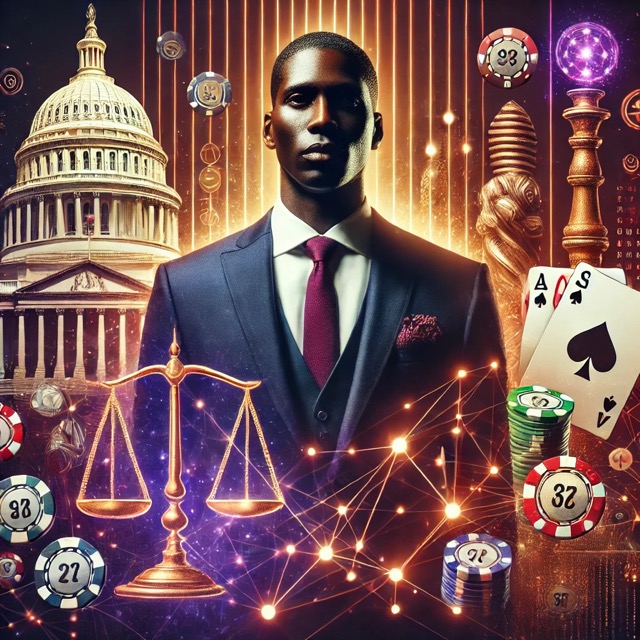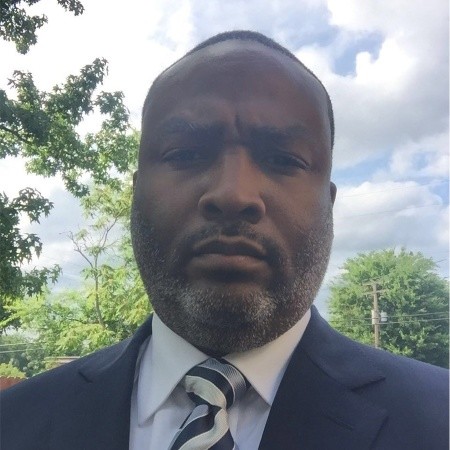
How Political Capital & Bipartisanship Fuels the Industry’s Success
By Kahari Nash, The BooRay! King
My journey into the world of gaming isn’t just about cards, dice, or casino floors. It’s deeply rooted in a legacy of political influence, resilience, and an unwavering connection between regulatory authorities and political capital. This delicate marriage between governance and commerce has not only shaped my career but continues to impact the global gaming industry at large. This is the story of how these two forces—often seen as opposites—can create bridges for growth, especially in the gaming world.
A Legacy of Political Influence
This story begins long before I ever shuffled a deck of cards. My family’s political and social influence in Mississippi ran deep, starting with my great-grandfather Wade Riley Bell, A Black Republican and Charter Member of the Bolivar County Farm Bureau Negro Division Headquartered in Mound Bayou “The Jewel of the Delta” and Organized in 1953 Representing 37,000 Acres of Negro Farmland Tax Assessed Value $7,500,000; and my grandmother, Ruby Stein Perry-Patton (A Black Democrat), my 1st lesson in how to navigate bipartisanship.
For over fifty years, my Grandma Ruby’s home was the nerve center of a very powerful political machine that influenced the Black vote in the Mississippi Delta. Every Democratic Governor since William Winter to Ray Mabus (Former U.S. Ambassador to the Kingdom of Saudi Arabia & U.S. Naval Secretary) to Ronnie Musgrove, U.S. Congressional Members Mike Espy (Former U.S. Secretary of Agriculture) to Bennie Thompson, Central Mississippi Highway Commissioner Willie Simmons (Former Mississippi State Senator District 12) to former Clarksdale Mayor Henry Espy to Bolivar County Sheriff Kelvin Williams and a host of too many other elected officials to name were not just an acquaintance but a friend of my Grandma Ruby’s, and they all knew of the legendary Harlem Inn (Mississippi Blues Trail Marker # 96), where politics and commerce intertwined and dovetailed in Winstonville; which is also where I learned my most valuable lesson in bipartisanship from former Mississippi Governor Haley Barbour (Former RNC Chairman & Founding Partner BGR Group – Top Bipartisan Washington DC Lobbying Firm).
The Harlem Inn wasn’t just a venue for entertainment—it was a hub where political power and social capital mingled with the entrepreneurial spirit. This same combination of political strategy and business acumen is vital to understanding how regulatory authorities and political capital work hand-in-hand in the gambling industry today.
The Power of Political Capital and Bipartisanship in Gaming
One of the most important lessons I’ve learned throughout my journey is that the gaming industry is never just about games. It’s an industry built on relationships, legal frameworks, and often, political capital. For instance, Mississippi navigated the waters of the South in 1993 with the introduction of Riverboat Gambling. This wasn’t a simple regulatory decision; it was a calculated move that involved the alignment of political forces, business interests, and a deep understanding of the region’s economic needs. Fast forward to today, and Mississippi has embraced sports betting and lottery, leaving iGaming as the next frontier.
But the political framework supporting gaming isn’t limited to one state or country. The relaunch of the Congressional Gaming Caucus for the 116th Congress by co-chairs Rep. Bennie Thompson (D-MS-02) and Rep. Guy Reschenthaler (R-PA-14) is a testament to the growing national and global impact of the gaming industry. The Congressional Gaming Caucus serves as a platform to discuss federal policy issues related to the U.S. casino industry and acts as a liaison between regulatory bodies and political capital. More than 30 members of Congress participate, representing the many states that benefit economically from gaming. This is a prime example of how political capital and bipartisanship are not just tools but a necessity for industry growth.
Regulatory Authorities and Their Role in Global Commerce
Regulation is the bedrock of any thriving industry, but in gaming, the stakes are even higher. Regulatory bodies ensure fairness, legality, and ethical business practices while balancing the interests of local governments, investors, and operators. Figures like Lorenzo Creighton, the first Black gaming commissioner in Mississippi, have played pivotal roles in shaping gaming regulation. Creighton’s journey—from the Deputy Director of the Iowa Racing and Gaming Commission to managing casinos for major gaming brands like Bally’s New Orleans and MGM—demonstrates the vital link between regulatory authority and business success.
This regulatory framework is critical when discussing the global application of gaming. From the U.S. to Europe and Asia, regulations vary drastically, but one constant remains: the need for political willpower and strategic partnerships between international, national, state governments and global enterprises. The marriage of regulatory authorities with political capital is crucial to ensure a fair and flourishing gaming industry, both domestically and globally.
Bridging Global Commerce Through Gaming
Gaming is an industry with a significant global footprint. It is estimated that the gaming industry contributes $261 billion to the U.S. economy alone, supporting nearly 2 million jobs. Yet, its influence extends beyond the U.S. borders, with countries worldwide looking to replicate the American model of gaming regulation and political collaboration. Take Africa and the Middle East, for example, where I am anchored royally, culturally, politically and economically; their regulatory frameworks are still emerging but carry the potential to unlock vast economic growth. As global commerce continues to expand, so too must the frameworks that govern it.
My own ventures—whether it’s BooRay! or my broader entrepreneurial pursuits—have been guided by an understanding that gaming, like any other industry, requires a strong regulatory foundation backed by political influence. The best business deals, whether in gaming or any other industry, don’t just come from a great product or service; they come from the alignment of political, regulatory, and economic forces.
Conclusion: The Path Forward
As the gaming industry continues to expand across the globe, we must acknowledge the role of regulatory authorities and political capital in shaping its future. From the earliest days of the Harlem Inn to the modern-day Congressional Gaming Caucus, the marriage of these two forces has been and will continue to be a cornerstone of the gaming industry’s success.
For those looking to break into this world, my advice is simple: understand the rules of the game—both in cards and in politics. Regulatory authorities and political capital are not just gatekeepers; they are partners in a thriving and ever-evolving global gaming market.








